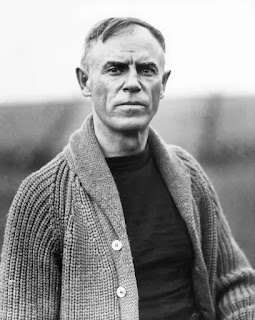John Heisman: Father of the Heisman Trophy
John Heisman was an American football player and coach best known for his contributions to the early development of American football and for whom the Heisman Trophy, awarded annually to the most outstanding college football player in the United States, is named.
Heisman was born on October 23, 1869, in Cleveland, Ohio, and he played college football as a lineman at Brown University. He later served as the head football coach at several colleges and universities, including Oberlin College, Buchtel College (now known as the University of Akron), Auburn University, Clemson University, Georgia Tech, and the University of Pennsylvania. Heisman's innovative coaching techniques and strategies helped shape the modern football game.
One of Heisman's most significant contributions was the development of the forward pass as a legitimate offensive strategy in football. He also introduced other rule changes that made the game safer and more exciting. During his coaching career, he achieved considerable success, winning numerous championships and earning a reputation as one of the sport's most influential figures.
After his coaching career, John Heisman served as the director of the Downtown Athletic Club in New York City, where the Heisman Trophy was established in his honor in 1935. The trophy has since become one of the most prestigious awards in college football, recognizing the outstanding individual performance of a college football player each year. John Heisman passed away in New York City on October 3, 1936, leaving a lasting legacy in American football.



Comments
Post a Comment